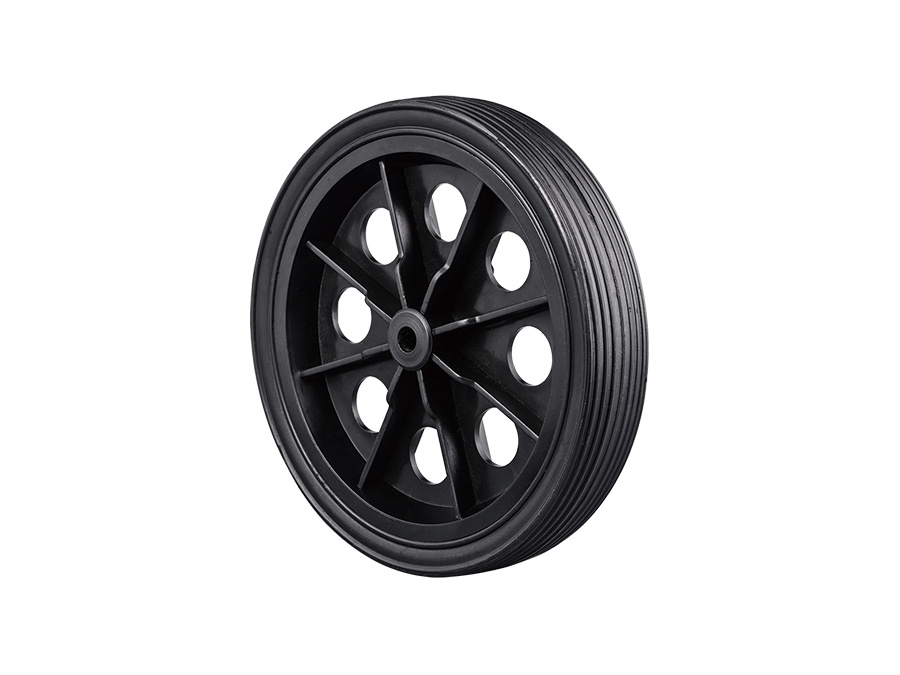News
Why Solid Rubber Tires 8x1.75 Are the Best Choice for Your Equipment
Release time:
2024-11-05 13:40
Why Solid Rubber Tires 8x1.75 Are the Best Choice for Your Equipment
Table of Contents
Introduction: The Evolution of Tire Technology
Understanding Solid Rubber Tires 8x1.75
Benefits of Solid Rubber Tires Over Traditional Tires
Applications of Solid Rubber Tires 8x1.75
Durability and Longevity of Solid Rubber Tires
Cost-Effectiveness of Solid Rubber Tires
Maintenance and Care for So
Why Solid Rubber Tires 8x1.75 Are the Best Choice for Your Equipment
Table of Contents
- Introduction: The Evolution of Tire Technology
- Understanding Solid Rubber Tires 8x1.75
- Benefits of Solid Rubber Tires Over Traditional Tires
- Applications of Solid Rubber Tires 8x1.75
- Durability and Longevity of Solid Rubber Tires
- Cost-Effectiveness of Solid Rubber Tires
- Maintenance and Care for Solid Rubber Tires
- Conclusion: The Smart Choice for Equipment Owners
- FAQs About Solid Rubber Tires 8x1.75
Introduction: The Evolution of Tire Technology
The world of tires is continually evolving, offering innovative solutions to meet the needs of various industries. Among these advancements, **solid rubber tires, particularly the 8x1.75 size**, have emerged as a leading choice for many equipment owners. Unlike traditional pneumatic tires, solid rubber tires boast a unique design that eliminates the risk of flats and punctures, making them a reliable option for a variety of applications.
In this article, we will explore the numerous benefits, applications, and maintenance of solid rubber tires 8x1.75. Our goal is to provide comprehensive insights that help you understand why these tires are the best choice for your equipment.
Understanding Solid Rubber Tires 8x1.75
Solid rubber tires are constructed entirely from rubber, providing a sturdy and durable solution for various equipment applications. The **8x1.75 size** refers to the tire's dimensions, with an 8-inch diameter and a 1.75-inch width. This size is common in many industrial and commercial equipment, making it essential for optimal performance.
Solid rubber tires are engineered to withstand heavy loads and provide excellent traction, making them suitable for environments where mobility and stability are crucial. Unlike air-filled tires, which can lose pressure and lead to performance issues, solid tires maintain their shape and provide consistent performance regardless of the environment.
Benefits of Solid Rubber Tires Over Traditional Tires
Understanding the advantages of solid rubber tires over traditional pneumatic options can help you make an informed decision about your equipment needs. Here are some of the primary benefits:
1. Puncture Resistance
One of the most significant advantages of solid rubber tires is their **puncture resistance**. Traditional tires are vulnerable to punctures and leaks, which can lead to costly downtime. Solid rubber tires eliminate this risk, ensuring that your equipment remains operational.
2. Superior Durability
Solid rubber tires are designed to withstand harsh environments, including exposure to chemicals, oils, and extreme temperatures. This durability translates into longer service life, reducing the frequency of replacements and overall operational costs.
3. Low Maintenance Requirements
Another benefit of solid rubber tires is the **low maintenance** they require. Unlike pneumatic tires, which need regular air pressure checks and rotation, solid tires need minimal attention. This feature saves time and resources for equipment operators.
4. Enhanced Load-Bearing Capacity
Solid rubber tires can support heavier loads than many air-filled counterparts. When equipped with these tires, your equipment can operate more efficiently without the risk of tire failure due to overloading.
5. Improved Stability and Traction
The design of solid rubber tires provides excellent traction on various surfaces, including wet or slippery conditions. This stability is crucial for equipment operating in challenging environments.
Applications of Solid Rubber Tires 8x1.75
Solid rubber tires 8x1.75 are versatile and find applications across multiple industries. Here are some common uses:
1. Industrial Equipment
In manufacturing and warehouse environments, solid rubber tires are ideal for **forklifts, pallet jacks,** and other material handling equipment. Their durability and load-bearing capacity make them a preferred choice for heavy-duty applications.
2. Landscaping and Lawn Care
For landscaping equipment such as **zero-turn mowers** and garden tractors, solid rubber tires provide excellent traction and stability. They can handle rough terrain without the risk of flats, making them perfect for outdoor applications.
3. Medical Equipment
In healthcare settings, solid rubber tires are commonly used on **hospital beds, wheelchairs,** and mobility scooters. Their quiet operation and smooth ride enhance the patient experience while ensuring reliability.
4. Recreational Vehicles
Solid rubber tires are increasingly popular in the recreational vehicle sector, particularly for **scooters and electric bikes**. They provide a comfortable ride without worrying about tire maintenance.
Durability and Longevity of Solid Rubber Tires
The longevity of solid rubber tires can significantly impact your operational costs. These tires are engineered to endure extreme conditions without compromising performance. Here are a few factors contributing to their durability:
1. Material Quality
High-quality rubber compounds are used in manufacturing solid tires, ensuring they can withstand wear and tear. This superior material quality translates into longer lifespan and reduced tire replacements.
2. Design Features
The design of solid rubber tires incorporates features that enhance durability, such as reinforced sidewalls and tread patterns optimized for performance. These attributes help distribute weight evenly and reduce wear.
3. Resistance to Environmental Factors
Solid rubber tires can resist various environmental factors, including UV rays, moisture, and chemicals. Unlike pneumatic tires, which may degrade over time, solid tires maintain their integrity and performance.
Cost-Effectiveness of Solid Rubber Tires
When evaluating the cost-effectiveness of solid rubber tires, consider both the initial investment and the long-term savings they offer:
1. Reduced Downtime
The elimination of flats and punctures means less downtime for your equipment. This reliability translates into increased productivity and reduced operational costs.
2. Lower Replacement Costs
Although solid rubber tires may have a higher upfront cost compared to traditional tires, their durability and longevity lead to lower replacement costs over time.
3. Decreased Maintenance Expenses
With minimal maintenance requirements, solid rubber tires save you money on upkeep. This reduction in maintenance costs enhances the overall cost-effectiveness of using solid rubber tires.
Maintenance and Care for Solid Rubber Tires
While solid rubber tires require less maintenance than traditional tires, proper care can extend their lifespan even further. Here are some tips for maintaining your solid rubber tires:
1. Regular Inspection
Conduct regular inspections to ensure there are no visible signs of wear or damage. Check for cracks, tears, or other issues that may affect performance.
2. Clean the Tires
Keep the tires clean by removing debris and dirt buildup. This care prevents premature wear and maintains optimal performance.
3. Store Properly
If equipment with solid rubber tires is not in use for an extended period, store it in a cool, dry place away from direct sunlight. Proper storage can help preserve the tires' integrity.
Conclusion: The Smart Choice for Equipment Owners
In conclusion, solid rubber tires 8x1.75 are an excellent choice for equipment owners seeking durability, reliability, and cost-effectiveness. With their exceptional puncture resistance, minimal maintenance needs, and versatility across various applications, these tires stand out in the market. Investing in solid rubber tires not only enhances your equipment's performance but also provides long-term savings that make them a smart choice for any operation.
FAQs About Solid Rubber Tires 8x1.75
1. Are solid rubber tires suitable for outdoor use?
Yes, solid rubber tires are designed for both indoor and outdoor environments, providing excellent traction and stability on various surfaces.
2. How do I measure my tire size for replacement?
To measure your tire size, note the diameter and width of the tire, such as 8x1.75, ensuring compatibility with your equipment.
3. Can solid rubber tires be used on heavy equipment?
Absolutely! Solid rubber tires are ideal for heavy equipment due to their durable construction and load-bearing capacity.
4. Do solid rubber tires provide a smooth ride?
While solid rubber tires may not absorb shocks like pneumatic tires, they offer a reliable and stable ride, especially on flat surfaces.
5. Where can I purchase solid rubber tires 8x1.75?
You can purchase solid rubber tires from various suppliers, including equipment dealers, online marketplaces, and specialty tire retailers. Be sure to choose a reputable source for quality products.
This comprehensive overview highlights the advantages of solid rubber tires 8x1.75, making them an optimal choice for your equipment needs.
solid rubber tire 8x1.75



